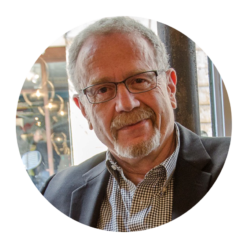Here’s a bit of text from Raffi Khatchadourian’s article in this week’s New Yorker on the development of emotion recognition software. He’s writing about a scientist named Rosalind Picard who did much of the early work in this field that has now been hijacked by ad agencies and phone companies.
“She became convinced that reasoning and emotion were inseparable; just as too much emotion could cause irrational thinking, so could too little. Brain injuries specific to emotional processing robbed people of their capacity to make decisions, see the bigger picture, exercise common sense…”
I don’t mean to suggest that I have some kind of brain injury, I don’t, but symptoms described here very closely mirror some of the trouble I’ve had using anti-depressant medications, which makes me wonder if the effects of the medications might not be compared to brain injury.
I’d expect the medical and pharmaceutical industries to argue that it’s not the drugs, it’s the depression, but I’d counter with the idea that the meds exacerbate the problems by making the patient comfortable with his condition. By rounding off the rough edges, dulling emotions, and allowing one to function, the drugs extend the damage caused by the depression.
If I can’t feel the anger, how can I summon the will to fight it?
I’m not suggesting that everyone quit the meds and sue the drug companies; I’m only talking about my reactions and desire for change.
Almost two years ago, when I first began writing the semi-autobiographical novel now called Angle of Reflection, I made my first attempt to quit the meds. Early effects including disturbed sleep patterns and overreaction to sentimentality were the same then as now, but then things got a little out of control. Just beginning to write fiction, I became a bit confused about reality, and a phone call from a friend who is the model for a pivotal character drove me over the edge and back to the meds. Looking back at that now, I’m not exactly sure what happened. I tend to think I got caught up in my own fantasy, resulting in an extremely exaggerated reaction. Whatever it was, it’s different now, well some things are. I’m still working on the book, but I’ve learned a lot about the process of writing fiction and a few things about myself.
And now that I’m learning about withdrawal from the medication there are several scenes that will need to be rewritten – again.
By the way, the New Yorker piece is terrifying to those of us who still think we have some privacy. It’s in the current issue.


I look forward to reading your monthly installments and am curious, too, about your novel. I also have suffered from depression, mildly so, much of it brought on by unprocessed grief from the loss of my mother. It really wasn’t until I began a meditation practice many, many years ago that the depression began to lift. I am trying now to write a book about that time in my life. I never tried, or felt the need to try medication. I think I was saved from that by my meditation practice but family members have suffered bouts of depression and it does seem to run in families.
One sentence troubles me, though. Why do you think, as your passage here states, “if (you) can’t feel the anger, how can I summon the will to fight it?” That puzzled me until I realized what you are perhaps really getting at is that if you can’t feel the emotion you have no hope in processing it. And that does present a conundrum, does it not. Is that what you’re getting at here?
Look forward to hearing more. Keep writing. I’m listening, my friend.
Thanks Meg,
You did read me right. What’s really troubling me is the dulling effect of the meds which leads to acceptance of the condition. I might be wrong but I think the healthier way is to try to confront, and in your word, process, the roots of the problem. I don’t think psychiatry has answers, leaving them dependent on the prescriptions, which makes pharmaceutical companies happy, if not the patients. I need to learn more about meditation.
Ron
Or, maybe medication needs to learn more about you.